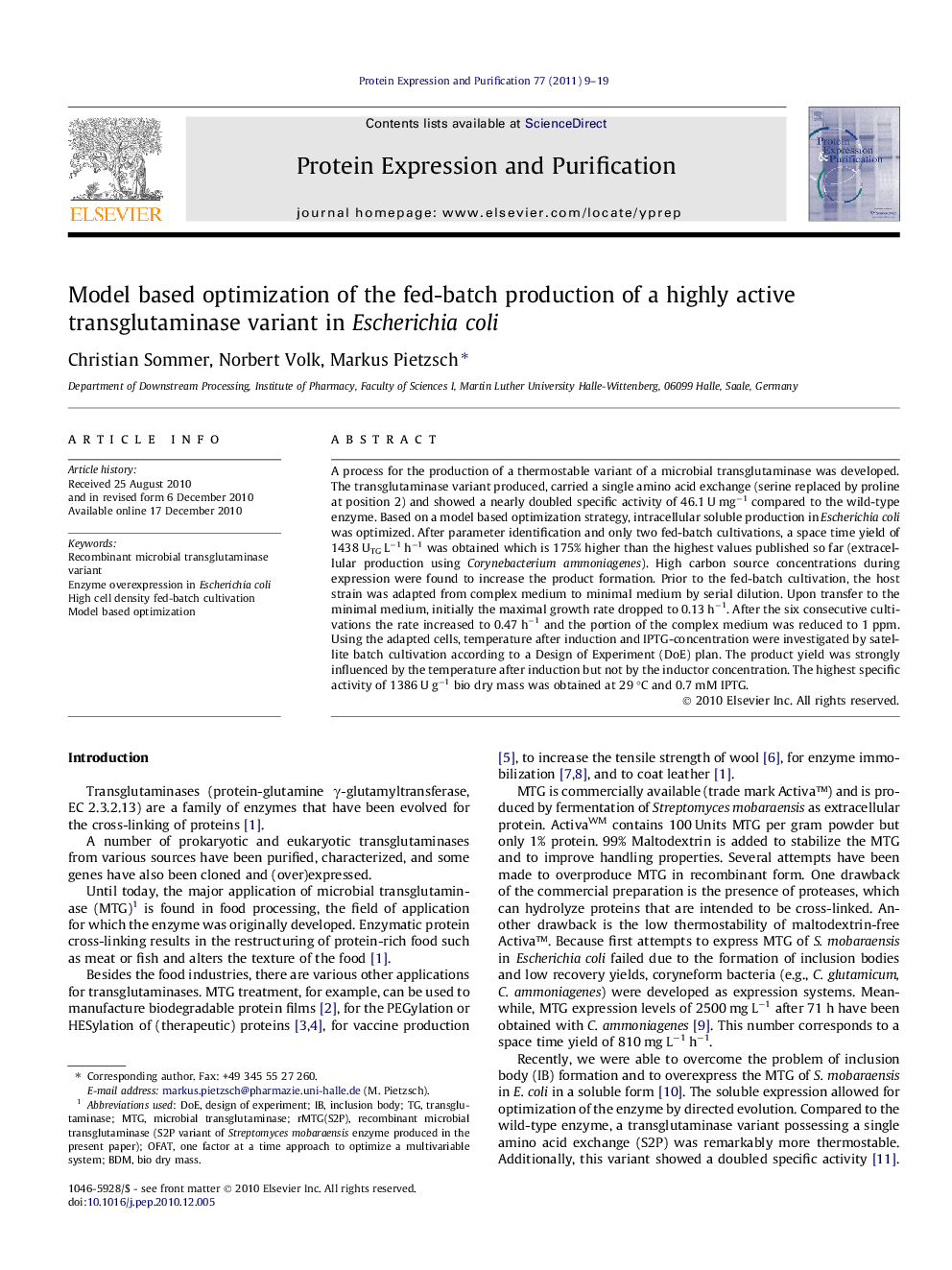| Article ID | Journal | Published Year | Pages | File Type |
|---|---|---|---|---|
| 2020791 | Protein Expression and Purification | 2011 | 11 Pages |
Abstract
A process for the production of a thermostable variant of a microbial transglutaminase was developed. The transglutaminase variant produced, carried a single amino acid exchange (serine replaced by proline at position 2) and showed a nearly doubled specific activity of 46.1 U mgâ1 compared to the wild-type enzyme. Based on a model based optimization strategy, intracellular soluble production in Escherichia coli was optimized. After parameter identification and only two fed-batch cultivations, a space time yield of 1438 UTG Lâ1 hâ1 was obtained which is 175% higher than the highest values published so far (extracellular production using Corynebacterium ammoniagenes). High carbon source concentrations during expression were found to increase the product formation. Prior to the fed-batch cultivation, the host strain was adapted from complex medium to minimal medium by serial dilution. Upon transfer to the minimal medium, initially the maximal growth rate dropped to 0.13 hâ1. After the six consecutive cultivations the rate increased to 0.47 hâ1 and the portion of the complex medium was reduced to 1 ppm. Using the adapted cells, temperature after induction and IPTG-concentration were investigated by satellite batch cultivation according to a Design of Experiment (DoE) plan. The product yield was strongly influenced by the temperature after induction but not by the inductor concentration. The highest specific activity of 1386 U gâ1 bio dry mass was obtained at 29 °C and 0.7 mM IPTG.
Keywords
Related Topics
Life Sciences
Biochemistry, Genetics and Molecular Biology
Biochemistry
Authors
Christian Sommer, Norbert Volk, Markus Pietzsch,
